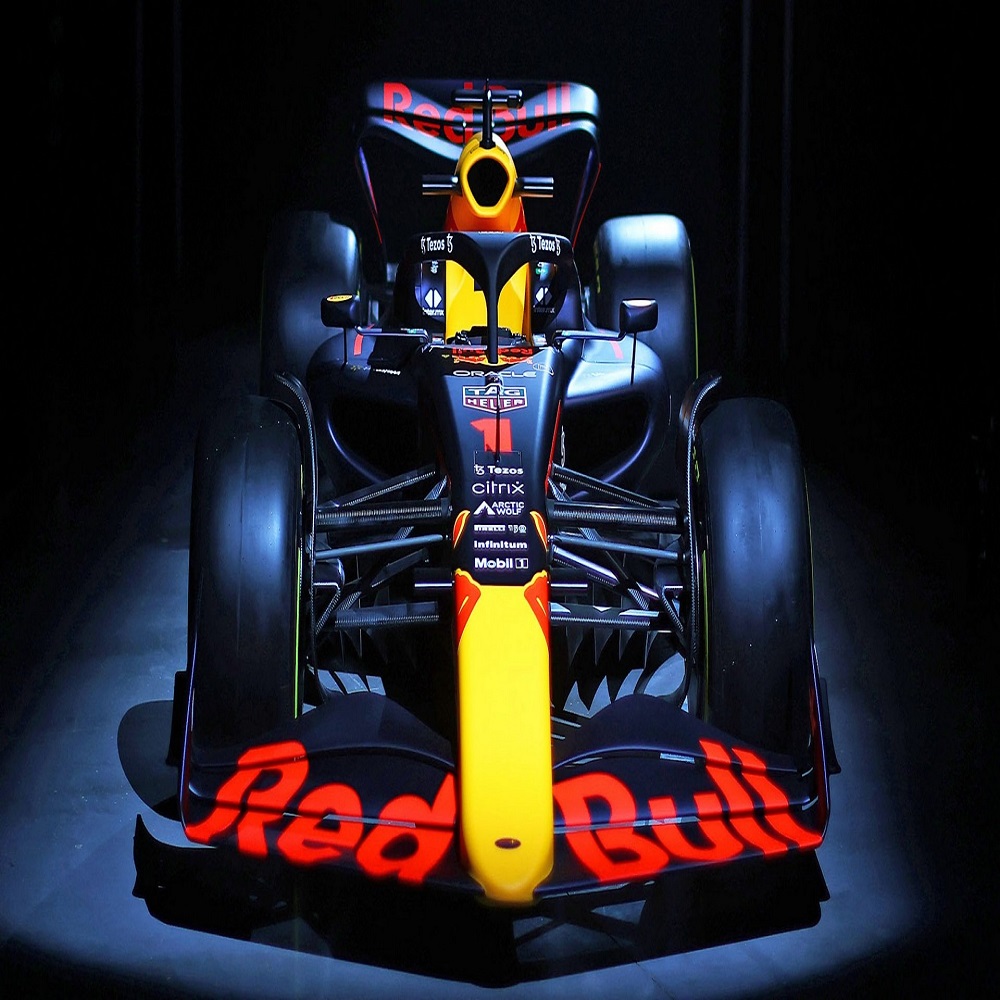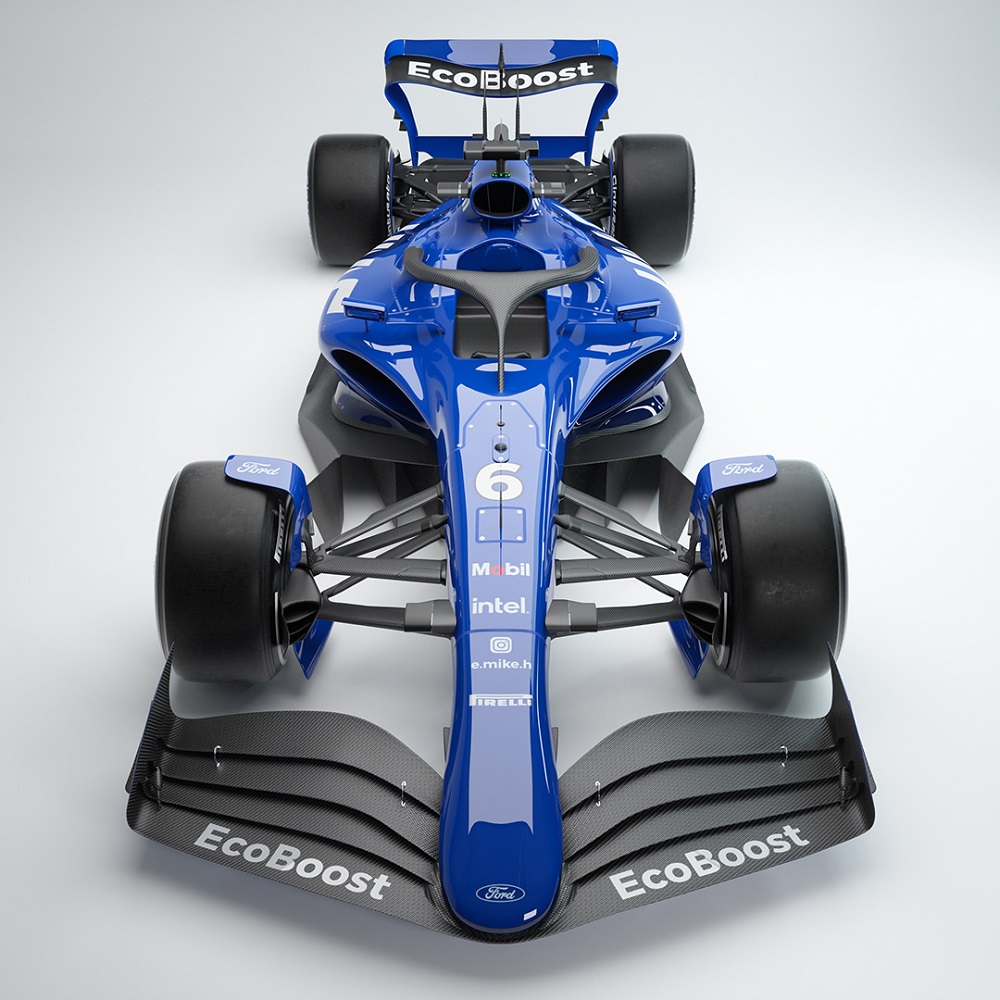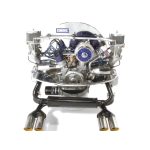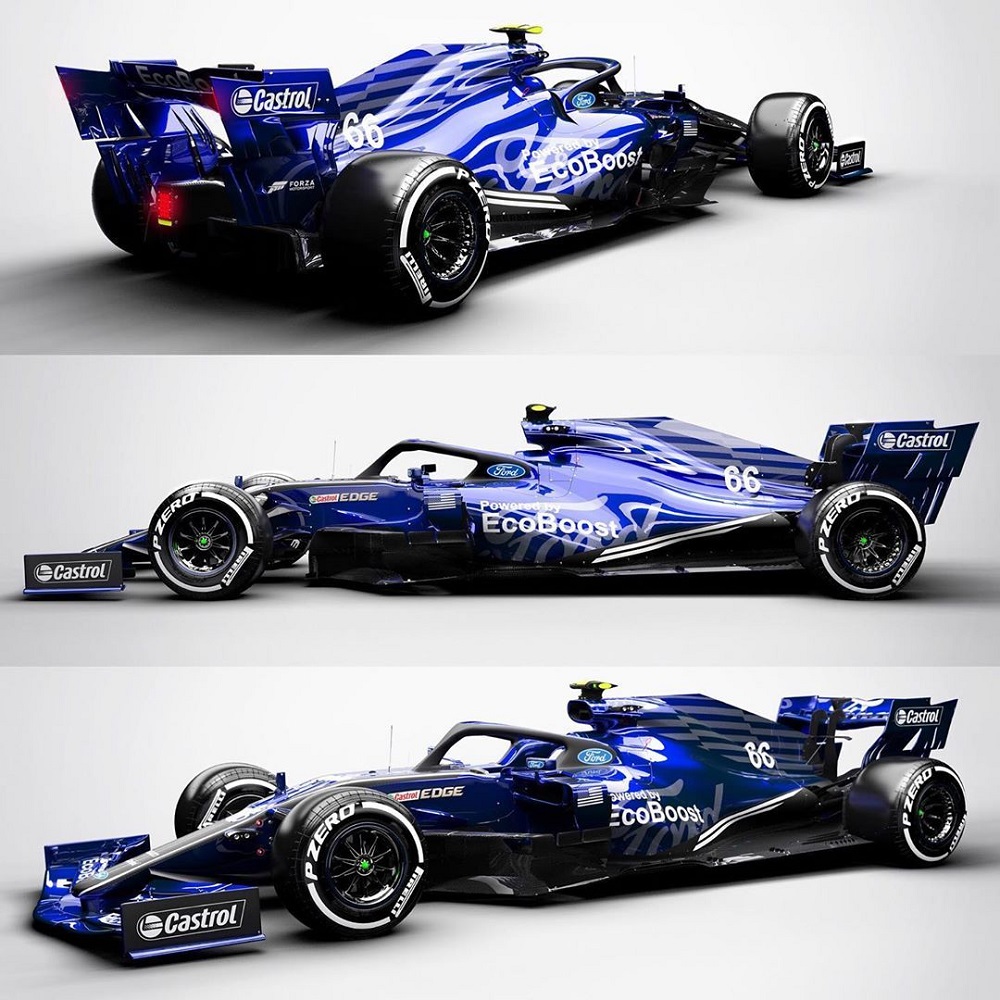The Ford F1 car is an iconic figure in the racing world, symbolizing a potent mixture of power, innovation, and competition. Its legacy is intertwined with the illustrious history of Formula One racing, pushing boundaries of automotive technology and driver skill in 2024. Ford’s involvement in Formula One, particularly through its engines, has left an indomitable mark on the sport. In this article, we explore the impact of the Ford F1 car, highlighting the technical advancements, the legendary drivers, memorable victories, and its enduring influence on the future of racing.
Innovations that Changed the Track
Ford’s legacy in Formula One racing is marked by revolutionary changes in car technology and engineering strategies that have reshaped the sport.
The Ford-Cosworth DFV Engine
Perhaps Ford’s most significant contribution to F1 was the Cosworth DFV engine, introduced in 1967. This power unit’s design became the gold standard for the competition, delivering high performance and reliability. Its V8 configuration and fuel-efficient nature made it the engine of choice for multiple teams and paved the way for the modern era of engine manufacturing standards in F1.
Aerodynamics and Chassis Development
In tandem with engine prowess, Ford-backed teams were also instrumental in pioneering aerodynamic designs. Teams using Ford engines were among the first to experiment with wings and ground effects, drastically improving downforce and stability. This collaborative effort led to innovations such as carbon fiber chassis construction, improving the strength-to-weight ratio and making cars both faster and safer.

Ford’s Hall of Fame
The legacy of the Ford F1 car isn’t confined to technical innovations. Several renowned drivers have achieved legendary status while behind the wheel of Ford-powered machines, setting records that stood for decades.
Jim Clark: Dominance in the Golden Age
Jim Clark, often considered one of the greatest F1 drivers, piloted the Ford-powered Lotus 49. With his unmatched driving skills, Clark secured numerous victories and two world championships, establishing Ford’s reputation for excellence in the elite racing circuits.
Ayrton Senna: Revving to Iconic Status
Ayrton Senna, the Brazilian maestro, also shares his part of ford f1 history with Ford, driving Ford-powered cars at different points in his illustrious career. Senna’s aggressive style and sheer talent, complemented by the power of Ford, cemented him as one of F1’s most formidable figures.
Races that Defined an Era
Since its debut, the Ford F1 car has been part of some of the most iconic and pivotal races in the history of Formula One, etching its name in the annals of the sport.
Ford’s Maiden Win
Pitched against the titans of F1, Ford’s first victory at the 1967 Dutch Grand Prix with the Ford-Cosworth DFV was a harbinger of the success that was to follow. This victory, claimed by Jim Clark, was the first of many, marking the beginning of an era wherein Ford-powered cars would dominate the podiums.
The Battle of the Brits
The 1969 British Grand Prix stands as one of the most thrilling races involving Ford-powered cars. This intense battle saw Ford engines powering the top two cars, with Jackie Stewart cinching victory in a thrilling duel with Jochen Rindt. This victory exemplifies Ford’s stronghold over the competition through superior engineering and skilled driving.

Ford’s Legacy in Modern Racing
Ford’s departure from the realm of F1 does not imply the end of its influence. The company’s technologies, philosophies, and the passion for racing continue to inspire teams and engineers in the sport.
The Technological Genealogy
Technological advancements pioneered by Ford, such as the turbocharging of engines and advanced computer simulations for car design, are now standard practices in F1. Ford’s emphasis on combining performance, reliability, and safety continues to drive innovation in the field.
The Inspirational Icon
Ford remains a revered name in the racing community, serving as an inspirational model for perseverance and excellence. Its historical contributions are often studied and lauded by the top minds in motorsports. Even without a current presence in F1, the Ford legacy still revs up the hearts of racing enthusiasts and professionals alike, embodying a spirit that goes well beyond the checkered flags of its time.
The Engine That Powered Champions
The heart of Ford’s F1 success lies in the unprecedented performance of its engines. A look back at the winning streaks in the golden era of racing reflects their engineering marvel.
The Power Behind the Victories
One cannot mention Ford’s triumphs without giving credit to the raw power and reliability of their engines. Ford’s involvement with the Cosworth DFV engine spawned a revolution in F1, claiming 155 victories and 12 driver championships. It became a preferred choice for numerous teams, and its adaptability saw it remain competitive for an astonishing 17 years, an era-defining legacy rarely matched in F1 history.
Setting Performance Benchmarks
Even after the Cosworth’s prime, Ford engines continued to push the boundaries of speed and efficiency. Engines like the Zetec-R V8 and the later Ford-Cosworth V10 carried on the tradition, setting new performance benchmarks and inspiring a whole generation of engine design that prioritized a blend of power, efficiency, and drivability.

The Evolving Race: Ford’s Adaptive Strategies
While Ford’s physical presence in Formula One has waxed and waned over the years, their adaptive strategies and resilience in the face of the sport’s evolving challenges highlight their commitment to motorsport.
From Direct Competition to Supplier Strategy
After competing directly, Ford transitioned into an engine supplier role. This displayed a tactical shift. Ford moved from being track-side contenders to influencers behind the scenes. The strategic maneuver allowed Ford to focus on core strengths. Ford excelled in designing and supplying top-class engines. Teams using Ford engines carried their legacy forward. These teams competed on the global stage.
Paving Way for Private Teams
Ford’s strategy led to the era of private teams competing with factory teams. This democratized the sport. The effect continues in the sport’s modern landscape. Ford provided access to competitive engines. This ensured talent from smaller teams could shine. This philosophy is still present in today’s racing environment.

Pioneering Moments in Ford’s F1 History
Breaking New Ground with the Ford Cosworth DFV Engine
The Ford Cosworth DFV engine revolutionized Formula One when it debuted in 1967, powering the Lotus 49 to victory in its very first race. Ford had backed a winner; the DFV became the engine to beat, dominating the sport for the next decade and contributing significantly to Ford’s legacy in F1 racing. This V8 engine became synonymous with reliability and performance, setting the standard for the competition.
Legendary Teams and Drivers
Ford’s F1 legacy is not only built on engineering prowess but also on the incredible teams and drivers it supported. Names like Jim Clark, Graham Hill, and later, Ayrton Senna, are intertwined with Ford’s history in the sport. Their remarkable skills, combined with the power of Ford’s engineering, led to numerous victories and etched Ford’s name into the pantheon of Formula One greats.
Touchstones of Success and Innovation
Championships and Records
Over the years, Ford-powered cars have won many drivers’ and constructors’ championships. These victories mark Ford as a significant player in Formula One. The DFV engine’s success led to Ford-powered vehicles achieving 155 Grand Prix wins. This achievement is a record in the sport. It stands as a testament to Ford’s dedication to excellence. It also highlights Ford’s commitment to innovation in motorsport.
Technological Advances on the Track
Ford’s F1 contributions weren’t limited to raw power; they also encompassed technological advancements. The company played a significant role in the development of aerodynamics, chassis design, and race data analytics, pushing the boundaries of what was technically possible and contributing to the sport’s evolution.

The Cultural Impact of Ford’s F1 Endeavors
Solidifying a Global Brand
Ford’s success in Formula One racing enhanced its global brand reputation. The company became associated with high-speed performance. It was linked to cutting-edge technology. Ford also became synonymous with international glamour. The blue oval logo of Ford turned into a symbol of racing heritage. This success helped make Ford a household name around the world.
Inspiring Future Generations
The legends of Ford’s F1 success have inspired countless individuals — from budding engineers to aspiring drivers — to pursue their passions in the automotive and motorsport fields. The stories of Ford’s victories and innovations serve to fuel the dreams of those looking to leave their mark on the racing world.
The Revival of Ford’s F1 Spirit
Renewed Interest in Formula One
In recent years, interest in Ford’s Formula One heritage has surged. This resurgence is fueled by nostalgic retrospectives. There’s also a renewed appetite for classic F1 stories. The achievements of Ford-powered cars from the past continue to captivate fans. Enthusiasts of all ages celebrate Ford’s influence on the sport.
Collectors and Classic F1 Cars
Ford F1 cars have become prized possessions among collectors. This is especially true for cars equipped with the Cosworth DFV engine. Collectors restore and race these historic machines. They showcase them at vintage racing events. Some keep them in private collections. Their presence celebrates Ford’s legacy in motorsport. They serve as a living museum of automotive history.

In closing, the Ford F1 car carries with it stories of human endeavor, engineering brilliance, and racing spirit. The feats of drivers who commanded the wheel are memorable. Their victories left crowds in awe. Ford’s F1 legacy remains alive through these achievements. As technology evolves, new motorsport history chapters are written. Ford’s role in Formula One’s development is evident. This role is a testament to the pursuit of excellence. It reflects an unwavering passion for speed.










